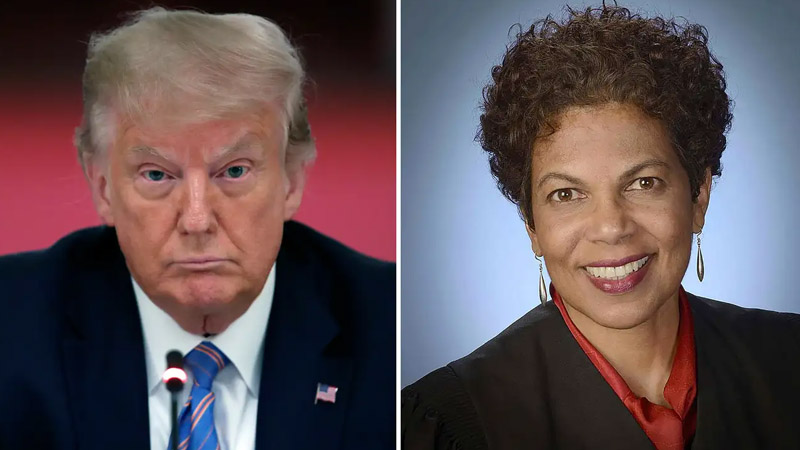Judge Tanya Chutkan Sentences Capitol Riot Participant Amidst Claims of Kangaroo Court

Photo: Associated Press (AP)
In a courtroom that has become all too familiar with the repercussions of the events of January 6th, U.S. District Judge Tanya Chutkan demonstrated her judicial resolve once again. This time, the focus was on Antony Vo, a participant in the Capitol riot, who was before her to receive his sentence. Vo’s assertion that he was convicted in what he termed a “kangaroo court” did little to sway the judge, who, with a stoic demeanor, sentenced him to nine months of imprisonment.
This episode was captured in detail by CBS News’ Scott MacFarlane, who shared a comprehensive account on social media. Judge Chutkan, no stranger to high-profile cases, is also at the helm of the federal election subversion criminal case involving former President Donald Trump. This particular case is currently paused as the Supreme Court deliberates on Trump’s claims of absolute immunity.
Amidst this backdrop, Vo’s sentencing unfolded, marked by exchanges that highlighted the complexities and tensions inherent in such proceedings. During the court session, Vo’s defense sought to portray his actions in a different light, arguing that his attendance at a January 6th protest outside a D.C. lockup was not in defiance of his release conditions.
They contended that the event was more of a “prayer vigil” than a protest, a characterization that seemed to clash with the court’s perspective. Judge Chutkan’s reaction, as noted by MacFarlane, underscored the moment’s tension; she visibly expressed frustration, a rare glimpse into the emotional landscape of a federal judge. Clarifying the nature of Vo’s actions, Judge Chutkan emphasized that he was not merely attending a benign prayer session but was actively participating in a gathering that voiced support for individuals detained for violent offenses related to January 6th.
This distinction was crucial in understanding the context of Vo’s actions and their implications. Kyle Cheney of Politico also observed that Judge Chutkan appeared unmoved by attempts to align Vo with the narrative that some of the more violent January 6th defendants were being unjustly held as “hostages.” This perspective starkly contrasts the harrowing testimonies of officers who faced life-threatening situations on that tumultuous day.
Antony Vo, a 31-year-old from Indiana, had previously been convicted by a jury for his involvement in the Capitol riot, facing charges including disorderly conduct and unauthorized entry into the Capitol building. The evidence against him was compelling, with federal authorities utilizing photographs and videos from Vo’s own social media accounts that placed him at the scene.
In various exchanges, Vo acknowledged his presence and participation, at one point humorously noting his and his mother’s role in disrupting the electoral vote count. Despite these admissions, Vo’s mother has not faced charges related to the events of January 6th. This sentencing serves as a reminder of the ongoing legal and societal reckoning following the Capitol riot. As each case unfolds, the judiciary continues to navigate the delicate balance between justice, accountability, and the broader implications of January 6th on American democracy.


